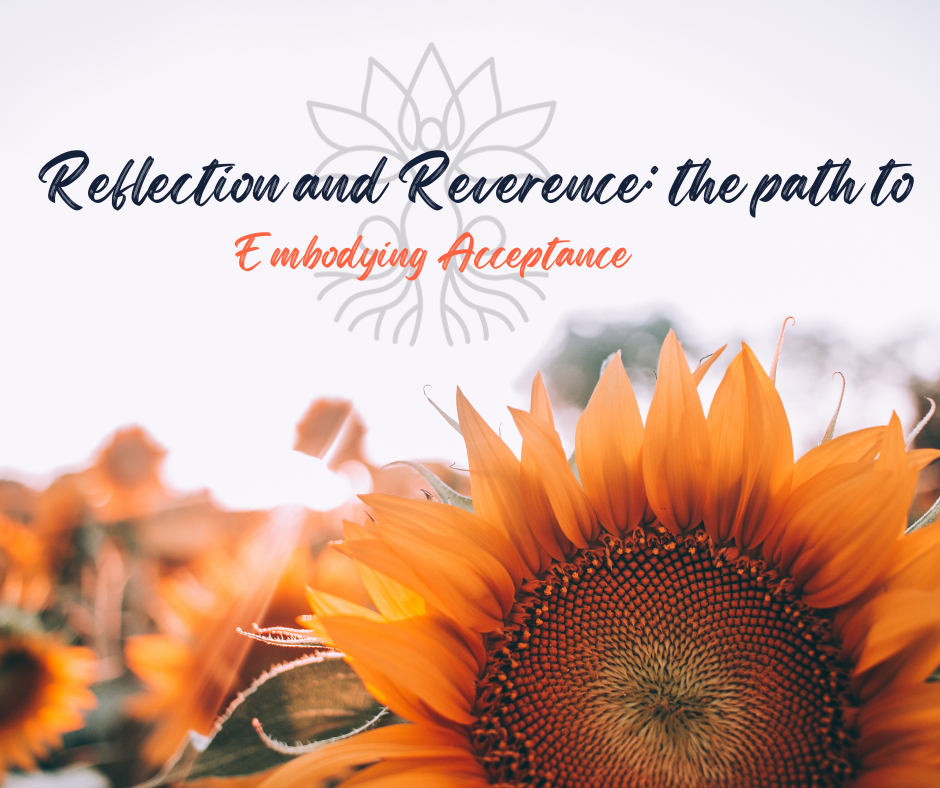Reflection and Reverence as a Path to Acceptance
- daytonfxmed
- Sep 26, 2025
- 3 min read
Your Nervous System, Safety, and Not Feeling “Good Enough”
Let’s talk for a moment about your poor, hard-working, beleaguered nervous system. It is not actually poor—rather, it is a highly tuned survival mechanism that is struggling with the overwhelm of modern life, conditioned limiting beliefs, and past traumas.
It needs to be treated with great care, like a precious and sensitive newborn. (I am a former labor and delivery nurse, so there will always be baby metaphors.)
Your nervous system needs a break, ok? It needs you to pause, rest a bit, and practice acceptance so that it can take a little vacation. If your nervous system can take a break, it may stop firing danger signals in the form of chronic illness and symptoms. (I encourage you to see Nicole Sachs’ work on the biology of how a dysregulated nervous system causes symptoms in the body.)
Two Key Opportunities to Practice Acceptance
1. The Desire for Things to Be Different
Nicole Sachs says: “The desire for things to be different than they are is a danger sign to your nervous system.”
When you constantly wish your home, life, body, or relationships were different, your mind is sending “not good enough” signals to your nervous system and body—which it perceives as a threat.
Whether it comes from external messages (“you’re not a good enough spouse, parent, employee”) or from your internal critic, your nervous system perceives danger and stays in high alert (fight, flight, freeze, fawn, faint). This correlates with high cortisol levels and many physical symptoms.
Your nervous system does not differentiate between actual threats to the body and emotional ones. Either way, it perceives danger to your life. This is what’s known as a dysregulated nervous system—one that is hypervigilant and unable to return to safety.
2. Achieving Your Goals
This one may surprise you. When you reach a long-sought goal—landing a job, graduating, buying a home, taking a dream trip, finding love, or even healing chronic pain—your nervous system may initially perceive it as scary, simply because it’s new.
You may recognize this as:
“Waiting for the other shoe to drop.”
“This almost feels too good to be true.”
“I can’t believe I get to do this.”
“I feel better now, but who knows how long it will last?”
All of these steal happiness, peace, and contentment. Many coaching clients ask: “I have a good life, why can’t I enjoy it?”
Freeing Yourself to Move Into Acceptance
First, talk with your Partnered Healing Provider and consider integrative life coaching and/or joining our Community Group. Learning nervous system regulation skills will help you feel safe and secure, allowing you to fully live in and enjoy your accomplishments.
Second, practice reflection and reverence.
Reflection
I can’t think of a life situation in which reflection is not beneficial. In this case, reflect back on your life and highlight any achievements, wins, manifestations, or goals you’ve reached.
When you reflect on how far you’ve come, you show your brain and nervous system that more is possible. You remind yourself that you can trust your own ability to keep working toward what you desire.
Take a moment right now to say:“Wow, look how far I have come in this life!”
Welcome to your life right now. You made it. You know more than you ever did, with greater wisdom and experience. You have arrived. Let yourself be here, now.
Reverence
Reverence is the feeling of awe and wonder at Life.
Nature is a wonderful place to feel awe: the sunrise, the fall colors, the cycles of growth. But reverence also lives in daily life:
A hot shower
Crisp sheets
Nourishing meals
Music that sends goosebumps over your skin
The comfort of a heated steering wheel on a cold morning
These are everyday moments elevated by your awareness.
What do you revel in? I revel in the way my body moves in a workout—something that hasn’t always come easily. I revel in witnessing the predictable development of a healthy baby. I revel in ordinary moments transformed by presence.
I’d love for you to share some of your own moments of reverence in the comments below.
Acceptance Does Not Equal Agreement
Nicole Sachs reminds us: “Acceptance does not equal agreement.”
Reflection and reverence do not require you to agree with difficult circumstances. You may still feel significant pain or symptoms. Acceptance simply means you don’t need those things to be different in this moment.
It is turning your face toward the light of all you already are, and the beauty and pleasure accessible to you now.
To learn more about your precious nervous system and how to regulate it, please speak with your Partnered Healing Provider.
Written by Jessica Cochran, BSN, RN, Integrative Life Coach





Comments